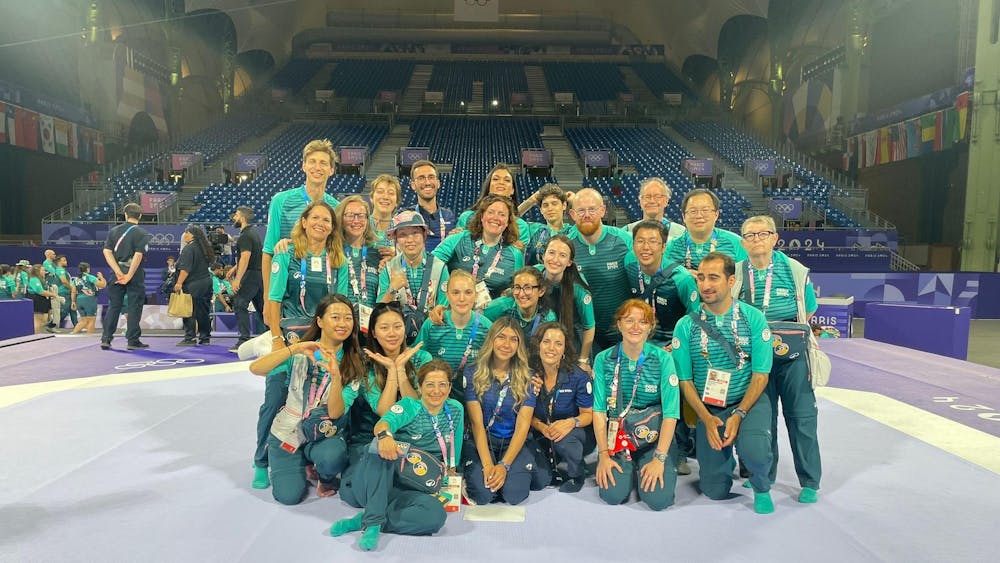Headlines and lives are collectively defined by new or unique beginnings: your first word, the start of the #MeToo era, the first Indian woman to win a Nobel Prize. As we enter a new decade, here are some of the new beginnings that shaped Emory University and Georgia in the 2010s and empowered them to be a force of nature in the 2020s.
2009: Rebranding of Emory Midtown Hospital
Emory Crawford Long Hospital changed its name to Emory University Hospital Midtown in 2009. But Emory has a commitment to honoring the original name’s nearly century-long history, and “Crawford W. Long Memorial Hospital” is retained on exterior monuments. This was the first of many steps in the major redevelopment and expansion of Emory’s clinical presence in Atlanta.
2011: Transforming Community Project Transforms Communities
Emory’s Transforming Community Project from 2005 to 2011 culminated in the University issuing an apology for Emory’s antebellum “entwinement with slavery.” The project’s name recognizes the fact that all communities are constantly changing. It will persevere as a revolutionary, courageous and remarkable initiative that, according to Emory University, “seeks to mobilize individuals in every sector of Emory University in a reflective, fact-driven engagement with the University’s history and current experiences of race, gender, sexuality and other forms of human difference at Emory and beyond.”
2012: Emory Alumnus Gingrich Seeks Republican Nomination
Newt Gingrich (65C), who served as the 50th Speaker of the United States House of Representatives from 1995 to 1999, sought the Republican nomination for the 2012 presidential election. Although the author of 13 New York Times bestselling books did not make the ballot, Gingrich now dedicates his time to leading Gingrich Productions, a consulting and media production group, with his wife, Callista. The production company specializes in producing historical documentaries, multimedia projects and books to “inspire audiences, solve challenges, and develop opportunities,” according to its website.
2012: NYSE Relocates to the Empire State of the South
In an $8.2 billion deal, the Atlanta-based Intercontinental Exchange acquired the hallmark of free-market capitalism, the New York Stock Exchange (NYSE), in 2012. It is safe to say that the NYSE has (partially) moved to the Peach State from the Big Apple, and from the Empire State Building to the Empire State of the South. This acquisition marks the first time in a 200-year history that the world’s largest stock exchange rests in the hands of another company.
2013: Campaign Emory Fundraises $1.7 Billion
Campaign Emory, launched in September 2008 during the Great Recession, ended successfully in 2013 after raising nearly $1.7 billion in scholarships, professorships, research support and capital funds for new buildings. The success of Campaign Emory, the most ambitious fundraising effort in the history of the university, was a result of nearly 150,000 donors. Of the total $1.69 billion raised during this campaign, Emory alumni contributed more than $349 million.
2013: Dr. Martin Luther King’s 50-Year Legacy Honored
In 2013, the U.S. celebrated the 50th anniversary of the revolutionary March on Washington, during which Dr. Martin Luther King delivered his “I Have a Dream” speech. Dr. King’s family members and friends, a plethora of Georgians, and the 39th President of the United States and Emory University’s Professor Emeritus Jimmy Carter attended the ceremony at The King Center.
2016: University of Georgia Athletes Win Gold at the Olympics
University of Georgia (UGA) swimmers Allison Schmitt and Melanie Margalis won gold medals as part of the United States’ women’s 4x200 freestyle relay Olympic team at the 2016 Summer Olympic Games in Rio de Janeiro, Brazil. UGA track star Shaunae Miller-Uibo, running for her native country of the Bahamas, won a gold medal in the 400-meter final. Fayette County, Ga. native Christian Taylor won a gold medal in the triple jump in 2012 and 2016.
2017: Emory University Annexed into City of Atlanta
The 2017 annexation of Emory’s Druid Hills campus into the City of Atlanta spurred the extension of the Metropolitan Atlanta Rapid Transit Authority (MARTA) rail to the campus. It also ensured that Emory would formally be a part of the City of Atlanta, rather than just DeKalb County, Ga. The ‘Clifton Corridor Transit Initiative,’ a light rail line, would provide commuting options to Emory, Atlanta’s largest employer with an $11.4 billion economic impact, decrease traffic congestion and improve environmental sustainability in the Emory area.
2017: Mercedes-Benz Stadium Praised as ‘The Best Venue in the NFL’
Luxury vehicle mammoth, Mercedes-Benz, announced that it was moving its U.S. corporate headquarters to Atlanta in 2015. In August 2017, the Mercedes-Benz Stadium, home to the Atlanta Falcons and Atlanta United FC, opened as a replacement for the Georgia Dome. Since then, the stadium has persevered as a venue for headliners such as Ariana Grande and the Super Bowl LIII, and touts itself as “The Best Venue in the NFL.”
2019: Ga. Governor Passes Controversial ‘Heartbeat Bill’
Governor Brian Kemp, R-Ga., signed the “heartbeat bill,” one of the most restrictive abortion laws in the nation, on May 7, 2019. The bill, which has temporarily been blocked by federal judge Steve C. Jones, effectively bans abortion when doctors can detect a fetal heartbeat, typically after six weeks of pregnancy. The precursory Georgia law allowed abortions up to the 20th week of pregnancy. Georgia was one of seven states, along with Alabama, Kentucky, Louisiana, Mississippi, Missouri and Ohio to pass similar abortion bans in 2019.
Conclusion
The last decade was a thrilling roller coaster ride for both Emory University and Georgia; some wrongs were righted, and some controversial decisions made. 2020 has greeted the home of the “world’s busiest” Hartsfield-Jackson Atlanta International Airport with the nation’s No. 3 rank in U.S. film production and only slightly alarming leaps in the field of artificial intelligence technology, illustrating to us the warped nature of time. In the new decade, we can look forward to pushing innovative boundaries and expanding horizons.





